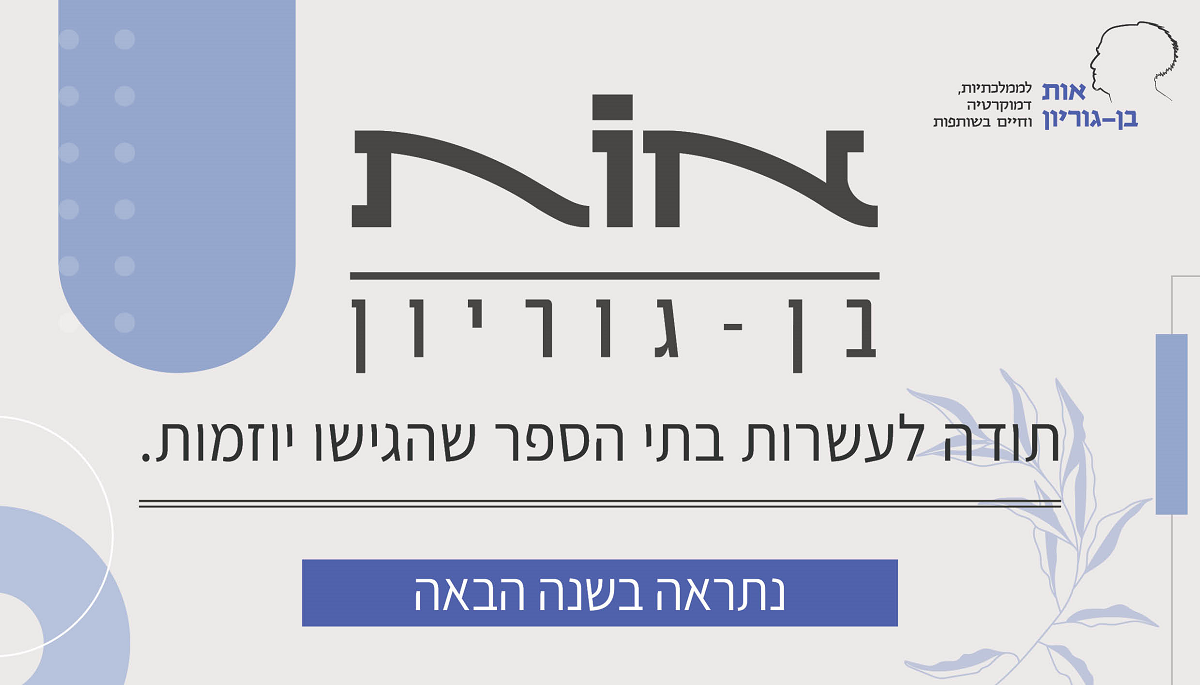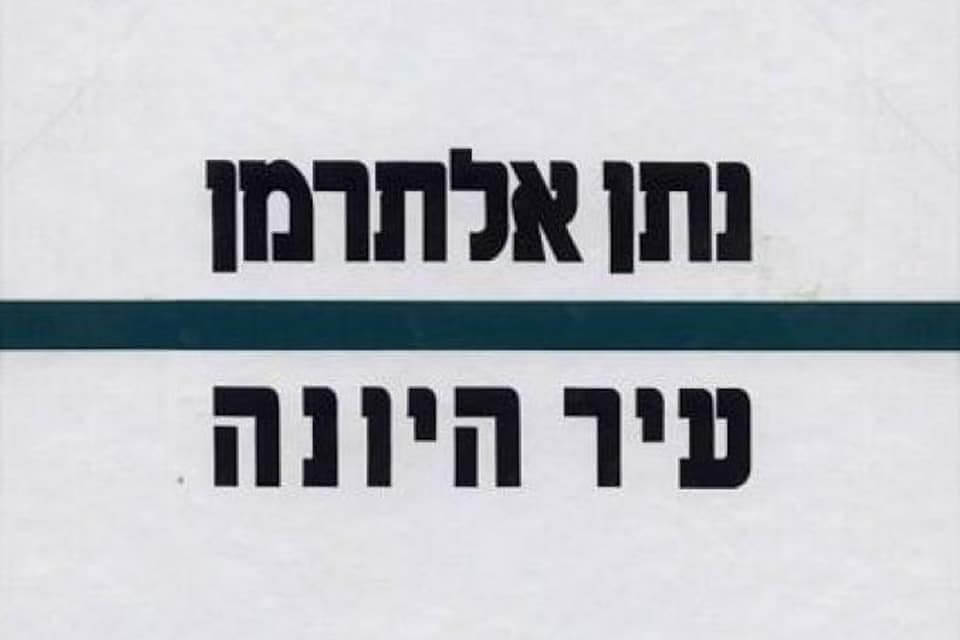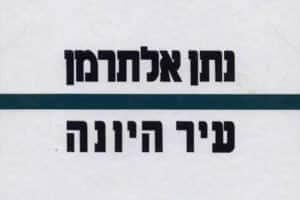Natan Alterman was and still is one of the most prolific and popular poets in Israeli literature. Over the years, Alterman has been identified with the labor movement in general and Mapai in particular, and the views and actions of Prime Minister David Ben-Gurion particularly adored Alterman.
Ben-Gurion, for his part, saw Alterman’s poems, and especially his writing on everyday affairs, published in his regular column, the seventh column in the newspaper “Davar”, as a valuable tool for conveying political, educational and value messages. The poet of the court. ” Along with much mutual appreciation, disagreements were sometimes discovered between the poet and the prime minister. Ben-Gurion’s Library There are several books by Natan Alterman, one of which is the book “The City of the Dove” published in 1957.
“City of the Dove” includes both national and personal songs. The national songs describe the situation in the Land of Israel in the period before the establishment of the state in the order in which they occurred: illegal immigration, the gathering of the exiles, the melting pot, the development of the language and the city, the War of Independence and other issues at the center of the public agenda.
The poems in the book were written throughout the 1940s, which were characterized by an accelerated process of construction and struggle for Israel’s independence. Alterman describes an evolutionary process of small and trivial but practical matters, which together join the great act. In the songs of “The City of the Dove”, Alterman did not make an effort to beautify reality, but described it critically and examiningly, and out of understanding and empathy.
“The transient, often controversial political issues were usually left to the poet by Torio. In the city of the dove he wrote about the principles on which a nation and state are built from the fumes and ashes of exile. To the extent that there is a demand for the extradition of those “thugs” who, according to him, threatened the integrity of the settlement, there is almost no mention of such issues in the city of Jonah. . ” (From: Natan Alterman – Poet of the Generation of the Struggle for Independence
During the War of Independence, Alterman was about 38 years old and exempt from conscription. Despite this, he was drafted, at his request, joined a rocket squad in the 88th Battalion of the 8th Brigade and participated in the battle for the occupation of Tel Gat (Tel Irani) and the village of Iraq al-Manshiyah in an attempt to break through to the besieged Negev. Alterman practically experienced the soldiers’ anxiety before and during the battle. He was released from service by Yitzhak Sadeh, according to rumors, at Ben-Gurion’s request.
The song “Parking Night” describes the establishment of a temporary military camp before going into battle. Later on, the poet’s diagnoses as an observer are combined with an “overview” of the deep meanings and impact of the war and its end on the human psyche.
Parking night. In the voice of things, in the weariness, in the insult
In the word of crafts he got up, here he is
Like the face of a city, the face of the slaughter field is built
In the interpretation of the camp which was condemned
To be shedding the blood of man and protecting him.
Parking night, Singer night, Rocky night
A night of many hurried crafts, a night of boils from the uncles
A night that masks the witchcraft of evil spirits
In the building of a kingdom, a night of wandering
A quadruped is spread over the individual and the battalions.
Yair Rosenblum composed the song for the 1973 Singing and Choral Festival. Yehoram Gaon called him and asked if he had a song he could sing at the festival. Rosenblum worked on his composition all night, but to his surprise a genius did not show up to receive the song. Rosenblum realized that Gaon had given up the song, but did not want to give up the Singing Festival. He turned to three of his foster members in the Nahal band – Hanan Yuval, Ephraim Shamir and Yardena Arazi – who were at this beginning of their independent path, and who performed it. The song stayed in the choral parade for 12 weeks of which two weeks in first place. In 2009, he was chosen 13th in the Yedioth Ahronoth parade to choose the best Israeli song of all time.
The book was published in 1957, and on the copy of David Ben-Gurion, Alterman wrote the following dedication:



